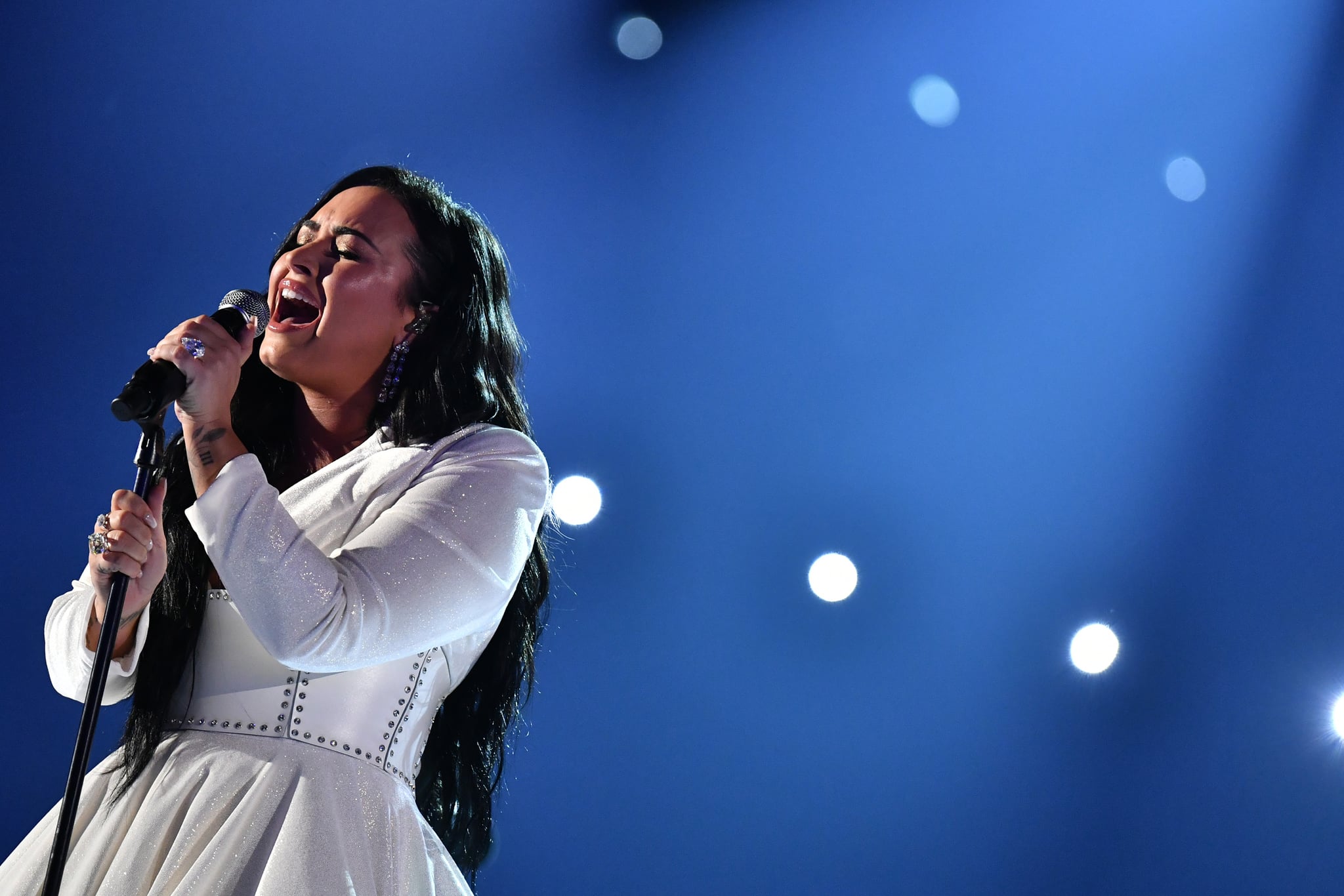Demi Lovato is getting heart-breakingly honest about her insecurities and her road to recovery from an eating disorder. On Ashley Graham’s Pretty Big Deal podcast, the 27-year-old singer opened up about how her insecurities and determination to just “power through” led to a decline in her mental health and relationship with food, exercise, and ultimately her own body.
Demi struggled with an eating disorder in the past, but had shared her journey with fans and appeared to be recovering, releasing empowering songs and filling her social feeds with powerful gym selfies. But that wasn’t the whole truth, Demi said. “I thought the past few years [were] recovery from an eating disorder, when it was just completely falling into it,” she shared. “It was me thinking I found recovery when I [hadn’t], and then living this kind of lie and trying to tell the world I was happy with myself when I really wasn’t.”
Her symptoms might not have been as obvious as before, Demi said, “but it was definitely an eating disorder.” Her relationship with exercise became “excessive,” working out six days a week, sometimes up to three times a day. “There were times when I lived at the gym,” she said. “I would take business meetings at the gym, on my breaks from my workouts. . . I’d eat a meal, go work out. Eat a meal, go work out.”
Eventually, Demi saw that her relationship to fitness, to food, to her body wasn’t making her happy. Her workouts and “extreme dieting”? “That’s not freedom,” she said. “That’s not everything that I’ve worked for and that I’ve preached to people, so why live that life if it’s a lie?” In the end, it wasn’t worth running herself into the ground in pursuit of a certain appearance. “I’m not willing to destroy my mental health to look a certain way anymore.”
Now Demi’s focused not on body positivity, but on body acceptance. When she looks in the mirror, she said her mantra is, “You’re healthy and I accept you. All I need to do is accept you.” She’s also stopped tracking her weight, a change from the past, when “I could tell you down to the ounces what I weighed without a scale,” she said. “I literally don’t know my weight and it’s the most free I’ve ever felt in my whole life.”
She still works out, but her focus has shifted. And it’s when she’s doing jiu-jitsu, Demi said, that she feels the most sexy. “I’m in tune with what I’m doing,” she said. “I’m completely present. I’m not focused on my body at all . . . you can’t be thinking about, ‘oh my god is my stomach looking like this?’ . . . You can’t be thinking about that because you’re gonna get choked out or you’re gonna get a broken bone!” It’s when she’s in the moment, working her body without worrying about it, that Demi feels the most free and beautiful. “I feel sexy when I’m showing my strength.”
Listen to the entire conversation between these two inspirational women above.
 Image Source: Getty / Emma McIntyre / Staff
Image Source: Getty / Emma McIntyre / Staff
